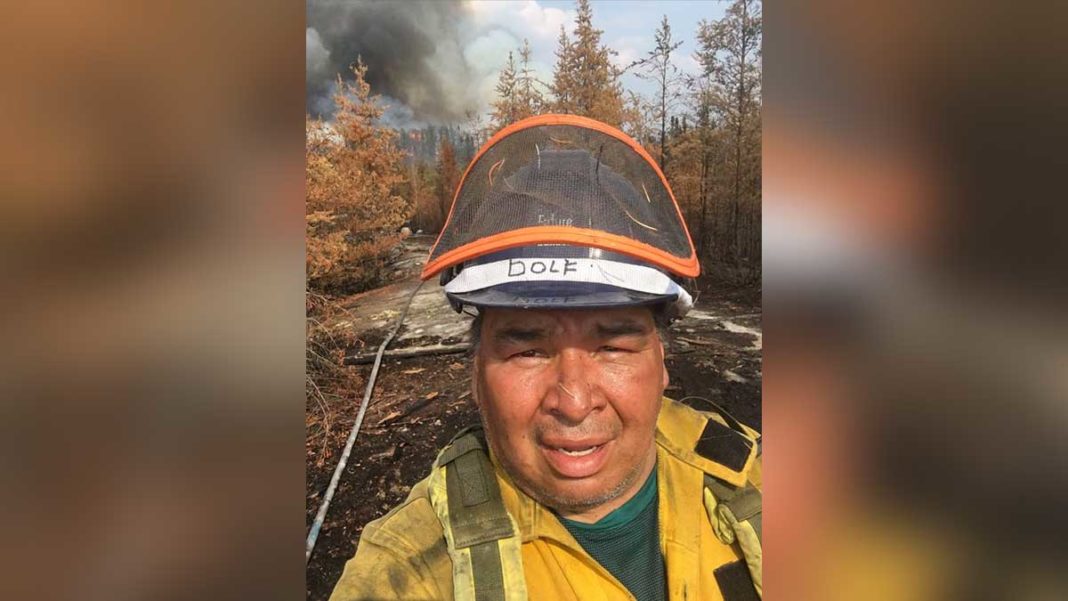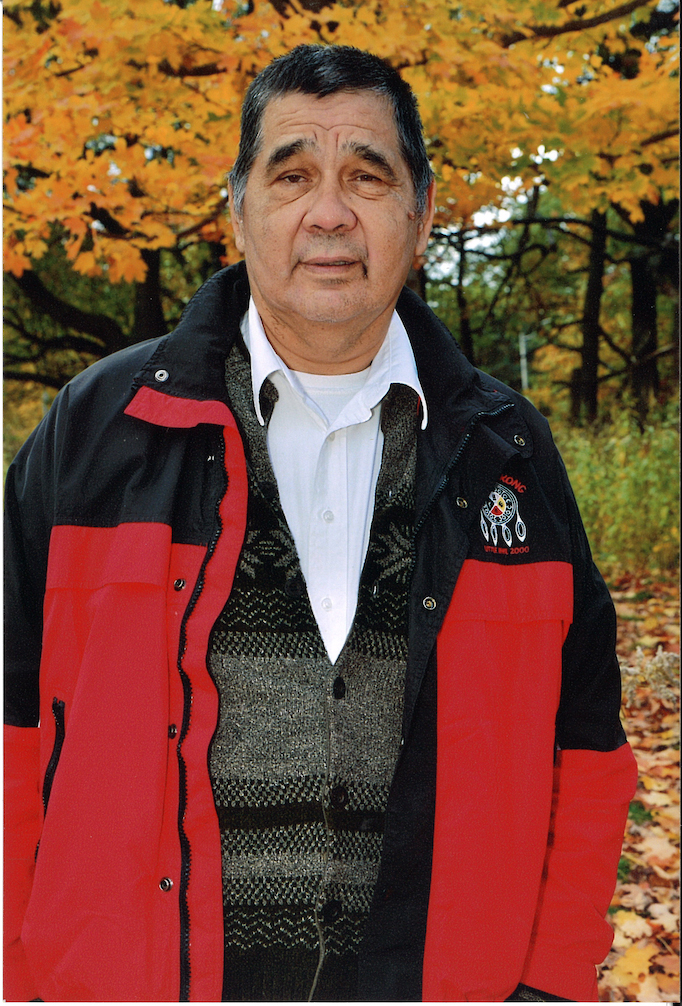WIIKWEMKOONG – For three-and-a-half decades Adolphus Trudeau has worked on, or near, the frontlines of the battle to contain Canada’s wildfire outbreaks. This July marked the 35th anniversary of the start of his career as a professional wildland firefighter. With climate change being fingered as the culprit behind the rising number of wildfires globally, the veteran firefighter said he has no regrets over his choice of career and would highly recommend that path to any young person looking for a rewarding career, especially Anishinaabe youth.
“It was been quite the journey and July was a really emotional month for me,” said Mr. Trudeau. “Red Lake # 7 fire in 1986 was the year that I started the fire management program as a firefighter. When I was asked to help with the dangerous wildfire situation in northwestern Ontario, I didn’t hesitate to serve and protect.”
That being said, Mr. Trudeau said that he attributes his success to his education. “If it wasn’t for education, then I wouldn’t have had success in the natural resources sector not only as an Anishinaabe forestry technician but also as a firefighter with the Ontario Ministry of Natural Resources (OMNR).”
Deployments across Canada and the United States (Montana) throughout the course of his career have brought Mr. Trudeau many great memories and, he admits, more than a bit of excitement.
Like most worthwhile careers in life, the gig has not come without sacrifices, however. “This past July was the most memorable,” he said of those sacrifices. “I missed my dad’s 75th birthday and my mom’s first-year anniversary of her passing. My sons have also made sacrifices while I was away.”
He said his family understands those sacrifices. “They all know my passion for the wildland fire program,” he said. “I also carry that huge heart and passion for my people and will do anything to help my people.”
He recalled an incident that occurred after he completed his last fire assignment in Sioux Lookout.
“We stopped in Sioux Lookout making our way home and this is where I noticed a homeless First Nations elder at the local Tim Hortons,” he recalled. The elder was in a bad way. “I was saddened and very disturbed to see this elder’s situation,” said Mr. Trudeau. “I immediately went to the back of the bus and pulled my firepack and gave my new rain suit, work gloves and paid for his Tim Hortons’ meal with my $50 gift card. We both looked at each other as we shook hands and could see not only the joy but emotion that these gifts brought him. No elder should be living this way. I’m just glad that I did my part to not only serve and protect as a firefighter but also care for all of my people, especially our elders.”
Mr. Trudeau said that taking care of the community’s elders is a major responsibility that should be shared by all community members. “I hope to not only prompt my fellow Anishinaabe to care for our elders, but also inspire them by seeing that if this 53-year-old recycled teenager can still protect Mother Earth then maybe they can, too.”
He noted that there are few occupations in this world that bring someone closer to the land than a wildland firefighter and few are better equipped for that role than Indigenous youth, whose traditions and culture remain closely tied to the land, but he also warned that those connections are in danger of being severed by technology, as youth tend to park themselves in front of a screen too much.
“Put the phones and the computers away and get out in the bush, on the land,” he said. “The connections you will make out on the land will be hugely rewarding and reconnect you with those who came before. You will gain a greater understanding of who you are and where you have come from.”
Mr. Trudeau said that there needs to be a change in the way Anishinaabe fire teams are utilized, however. “More teams need to be designated as Type 1 by the Ministry of Natural Resources and Forestry, so they can work outside the province,” he said. “My number one goal as a First Nations firefighter is having us leave the province.”
The category two rating assigned to Anishinaabe teams does not allow them to leave the province. “I don’t understand it,” he said. “We are here, instead they bring in teams from other countries.”
With the burgeoning number of wildland fires rampaging across the North and west, Canada should have a made-in-Canada solution. It just doesn’t make economic sense.”
He noted that, although taking on a career in wildland firefighting takes someone away from home, the work does tend to be seasonal and pays well.
Having more First Nations trained firefighters will also enable communities to steward their own lands, rather than relying on outside forces. “We can look after our own resources as First Nations people,” he said.





